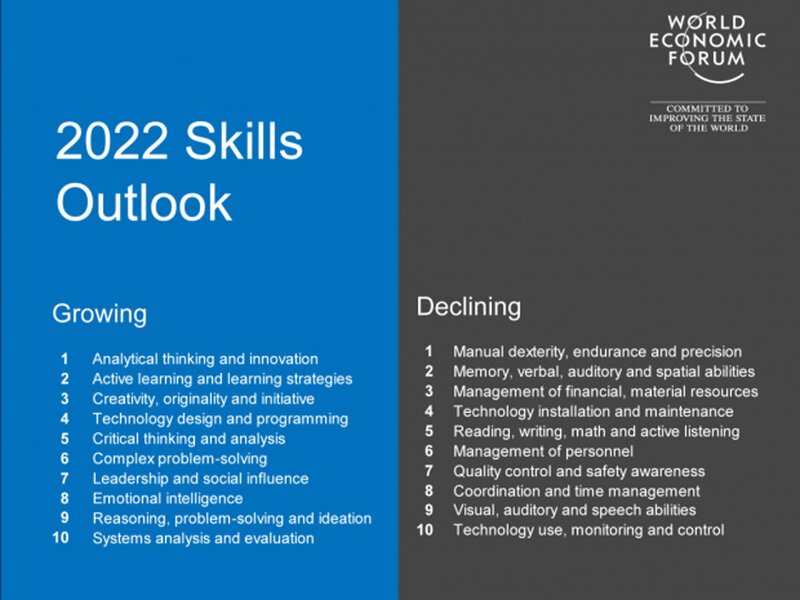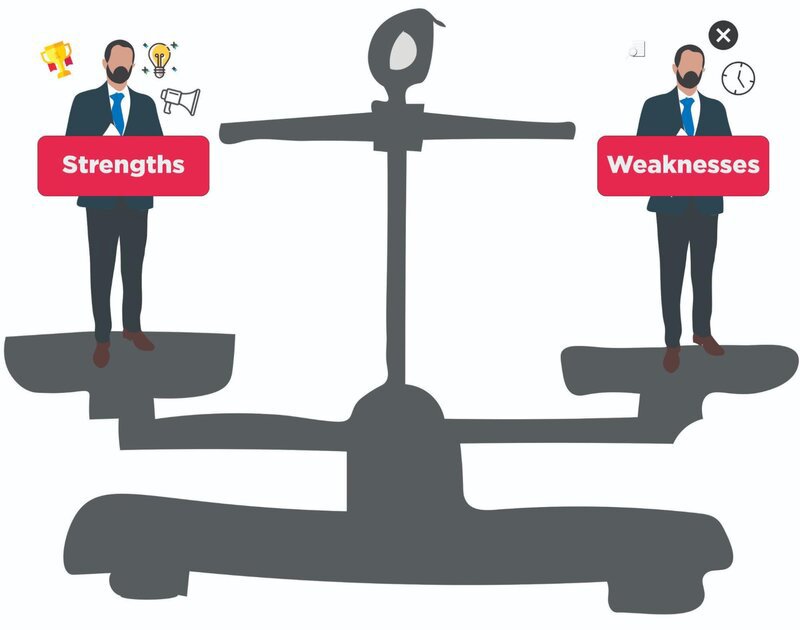The concept of “upskilling” employees, which refers to allocating time and resources to develop existing employees’ new skills, has become increasingly popular. Companies have embraced this practice, with firms such as PwC and Amazon publicly announcing commitments in spending billions of dollars in upskilling programs.
As HR professionals struggle to find candidates with the right soft skills for their organization, it’s clear that the future of the workforce is centered around the pivotal ingredient: emotional intelligence. In fact, the World Economic Forum reports that skills including emotional intelligence, creativity, and ideation will be in demand for the years to come.
What is Emotional Intelligence?

Upskilling Emotional Intelligence in Your Company
Zero in on Your Strengths and Weaknesses
Successful managers show self-awareness 一 the ability to perceive and articulate their emotions. They have a thorough understanding of themselves and are aware of both their abilities and limitations.
One of the most effective ways to upskill your soft skills and emotional intelligence is by keeping an inventory of your emotional strengths and weaknesses.
If you are unsure about your emotional strengths and weaknesses, take our free 15-question quiz to assess your level of emotional intelligence.

By leveraging your strengths and recognizing your limitations, you can develop your self-awareness and take advantage of development opportunities. To learn more about discovering yourself, read our recent blog on enhancing your emotional self-awareness.
Develop Your Assertiveness
It’s important to recognize that assertive leaders do not force their views on others and get everyone to agree with them. Instead, assertiveness is about finding the right balance between passive and aggressive communication, articulating your viewpoints, and establishing your position.
Pinpoint Your Triggers
Many of us have faced situations that triggered emotional reactions. For some, it can be when our colleagues say “I don’t understand”– which triggers us to become defensive. For others, it can be stressful situations that set off our emotions. Whatever the circumstances are, one of the most pivotal steps to upskilling emotional intelligence in the workplace is by identifying triggers.

Once you’ve determined what your triggers are, it’s essential to investigate the “Why” driving your reactions. What is it about these topics or situations that cause you to react strongly? The goal of pinpointing your triggers is to help you respond – rather than react –to similar situations in the future. By understanding our triggers, not only will we stay level-headed, but we can also avoid making hasty actions that we might later regret.
Invest in Virtual Emotional Intelligence Training
With 70% of employees forgetting what they learned in training after just 24 hours, it’s clear that employees need an interactive and unique training program. Every company and employee is different, so what works for some employees won’t work for others.
So how do you ensure your employee development program isn’t a waste of time? By focusing on customizable and personalized emotional intelligence training solutions. And as many businesses transition to a mainly remote or digital working environment, nothing is more useful in our digital age than a seamless online employee training program.

The Time to Reskill Is Now
An organization that focuses on upskilling its team’s emotional intelligence can find itself in the driver’s seat on the path to success. So, what’s stopping you? Take the first step in improving employee experience and development through upskilling emotional intelligence by booking a call with us here.
To learn more about emotional intelligence and how it impacts your organization, sign up for our newsletter here, where you will receive our latest updates, an inventory of resources, and much more!
Don’t forget to follow us on Twitter, Facebook, Instagram, or Linkedin to keep up with our latest blogs!
